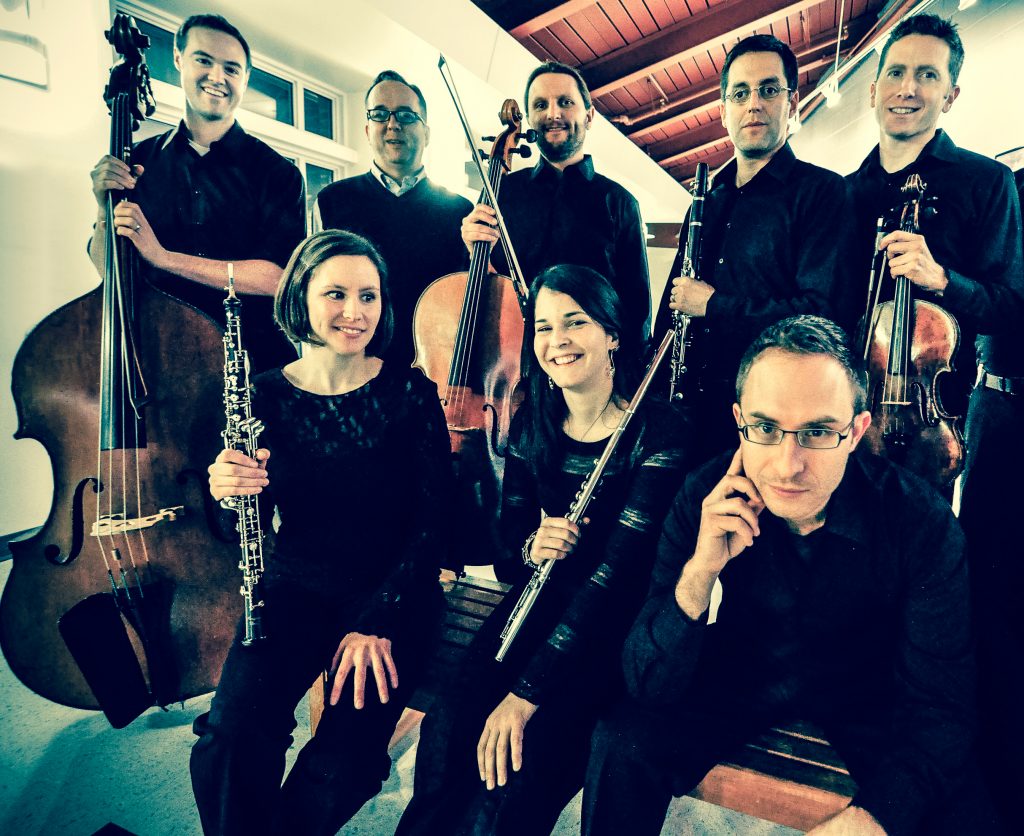Inscape Chamber Orchestra excavates a trio of neglected American gems

Inscape Chamber Orchestra performed music of Ulysses Kay, Walter Piston, and Samuel Barber Saturday night at the University of Maryland, Baltimore County.
Led by artistic director Richard Scerbo, the Inscape Chamber Orchestra presented a program of works by a trio of mid-20th-century American composers Saturday night at the Linehan Concert Hall at the University of Maryland, Baltimore County.
The least well-known of these composers was Ulysses Kay–nephew of the jazz legend King Oliver and a student of Howard Hanson, Bernard Rogers, and Paul Hindemith. Considering the prejudices arrayed against a black composer of “serious” music at that time, Kay had to have a strong, compelling voice to break through, and we surely heard one in his Suite from The Quiet One.
The Suite started life as a film score, and that episodic structure inevitably made the work feel inorganic in its musical jump-cuts. The Suite opens with dazzling, ecstatic shudders in the strings dotted by drumrolls, brass fanfares, and cascading piano, and draws from that a spiky, characterful melody. It then proceeds to the next thing, with little development and continuity.
Still, a listener who can stay focused can find a lot of memorable moments, like the evocative “Street Wanderings,” with ruminating winds ushered along by gauzy strings. The suite closes with a vignette titled “Crisis” that builds up vivid tension with driving strings and hectoring brass, though it ultimately resolves with a suddenness only explicable by cinematic necessity.
Under Scerbo, the Inscape ensemble made those episodes compelling with precise, expressive playing, sensitive both to the rhythmic vigor and aching lyricism of Kay’s music while putting the best possible spin on the fitfully jarring transitions.
Bracketing Kay’s suite on the intermission-less program were Walter Piston’s Divertimento for nine instruments and the full ballet version of Barber’s Medea. Scerbo mentioned that he finds Piston’s music “lively, industrial, mechanical…embodying the industrializing might that America brought to World War II.”
Yet Piston was foremost an American neoclassicist, a quality manifest in the sunny, carefree performance of his Divertimento by Scerbo and the orchestra.
Tunes bounced around among the ensemble (string quartet, double bass, flute, bassoon, oboe, and clarinet), Piston clearly enjoying tinkering with instrumental combinations to get new gleams on his thematic material. That was especially true in the Tranquillo slow movement, in which each of the Inscape players got to shine in solos and duos on a coolly sweet melody.
Scerbo mentioned that Inscape has been playing Medea since 2009, and the assured performance had the feel of relaxed long experience: unhurried yet intense, wringing out every drop of lyricism and finding the heat of vengeance where required. The final moments of the score had a shattering quality, such that the audience seemed reluctant to applaud and break the spell until Scerbo gestured that it was okay to do so.
The conductor announced that the orchestra plans to record all three works played at this concert–which will undoubtedly bring even more attention to these unjustly neglected American works–as well as Inscape Chamber Orchestra itself.
Andrew Lindemann Malone lives in Silver Spring, Maryland. His writing on music has appeared in the Washington Post, Jazz Times, and AllMusic, among others, as well as on his personal classical review blog, DMV Classical (dmvclassical.wordpress.com).
